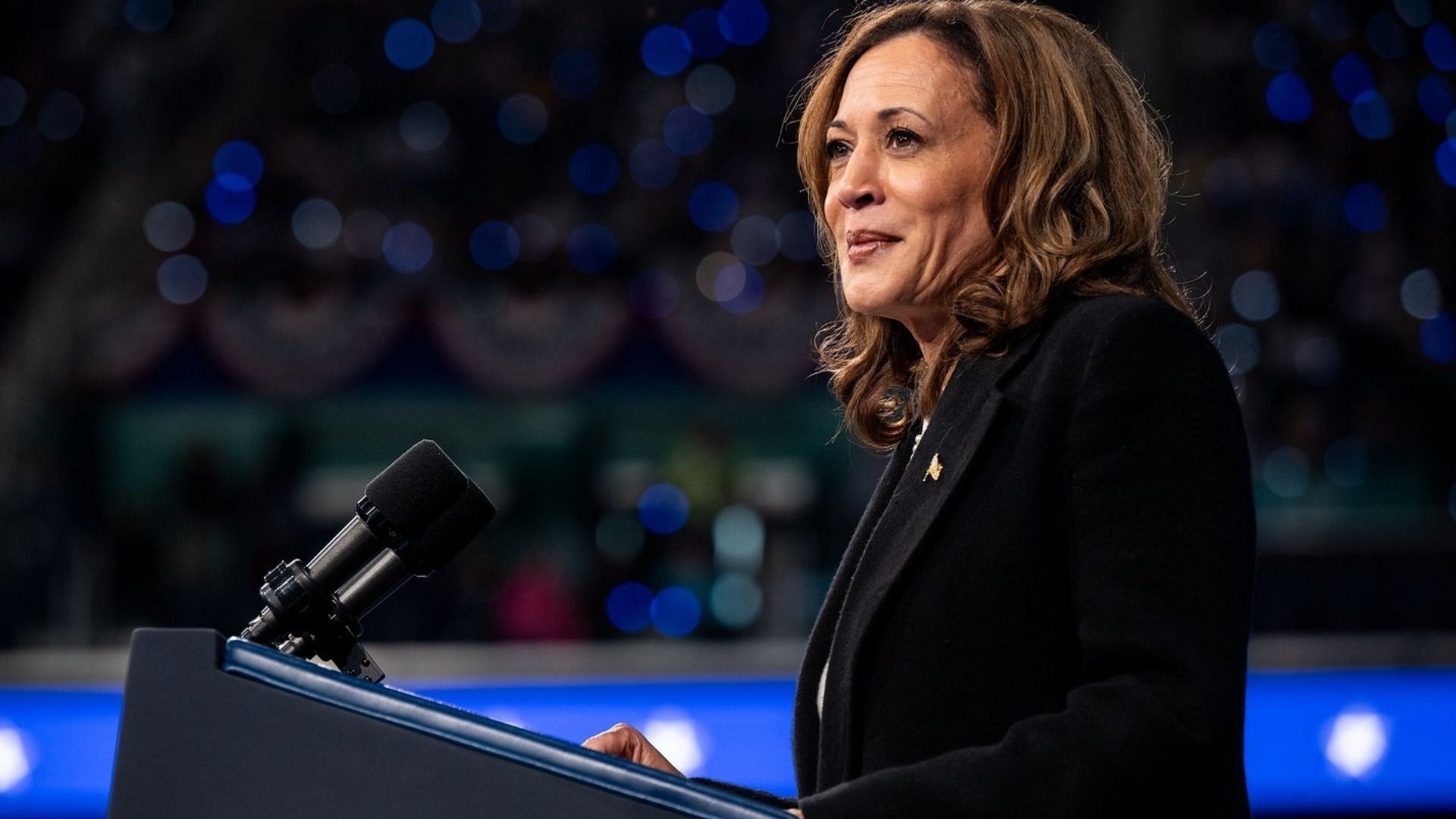
What does California Proposition 36 entail? Kamala Harris refuses to answer if she voted for the measure
Vice President Kamala Harris refused to weigh in on California's Proposition 36. During a rally in Detroit on Sunday, November 3, Kamala Harris was asked how she voted on California's controversial proposition 36, which guaranteed increased punishment for people convicted of certain drug or theft crimes. Harris answered:
"My ballot is on its way to California and I'm going to trust the system that it will arrive there. I am not gonna talk about the vote on that because, honestly, it's the Sunday before the election and I don't intend to create an endorsement one way or another around it, but I did vote,"
The passing of Proposition 36 will see the incarceration of people who fail to complete drug treatment. The increased punishment for certain drug and theft charges will also lead to some misdemeanors turning into felonies.
Kamala Harris refused to weigh in on Proposition 36 which increased punishment for those convicted of certain drug or theft crimes
According to the official voter information guide of the California November 5 general election, the controversial Proposition 36 stated that if a defendant had two prior theft or drug convictions, the proposition allowed felony charges for possessing certain drugs and for thefts under $950. Currently, thefts under $950 are only classified as misdemeanors.
The guide stated that if the voter were to vote 'Yes', it meant increased penalties for those convicted for particular drug and theft charges. This included longer prison sentences and in certain cases, people in possession of illegal drugs were to either serve up to three years in prison or complete treatment. A vote for 'No' meant that the current laws would remain unchanged.
If passed, the proposition would mean that repeat shoplifting, carjacking, or burglary offenders would face felony charges. The proposition's lengthening of felony sentences would mean that theft or damage of property sentences would be lengthened by up to three years if the crime was committed by three or more people in a group.
If Proposition 36 came to fruition, the sentences for selling particular illegal drugs including cocaine, heroin, fentanyl, or methamphetamine, among others, would be lengthened as per the amount that was sold. The proposition would generally require these sentences to be served behind bars.
Moreover, proposition 36 further requires the courts to warn citizens that they could face a murder charge if they provided illegal drugs that led to the user's death. A warning will be given to those who were convicted of drug selling or providing charges, increasing the likelihood of a murder conviction.
Proposition 36 would also have a profound fiscal effect on the state and local governments. It would lead to an increase in state criminal justice costs due to an increase in prison population and state court workload. According to the voter's guide, this would annually range from "several tens of millions of dollars to the low hundreds of millions of dollars."
Due to an increase in county jail and community supervision population and local court-related workload brought on by the court-mandated mental health and drug treatment programs, the proposition would also increase local criminal justice costs. As per the voter's guide, this would see an annual increase of tens of millions of dollars.
As detailed in the voter's guide, proponents of the proposition claim that the proposition's addressing of California's rampant drug trafficking and theft problems would make California communities safer. Arguments for the proposition called it a "balanced approach" aimed at fixing the loopholes in the law.
Opponents of the proposition claimed in the voter's guide that the law was only going to increase crime. Another critique was that the proposition put prisons first and treatments second. The cons section of the proposition on the voter's guide claimed:
"It reignites the failed war on drugs, makes simple drug possession a felony, and wastes billions on prisons, while slashing crucial funding for victims, crime prevention, treatment, and rehabilitation."
In 2014, proposition 47 successfully changed certain felony drug and theft crimes like shoplifting worth under $950 to misdemeanors. Prop 36 attempts to bring a shift to the changes brought on by Prop 47. According to The Guardian, even back in 2014, Kamala Harris refused to take a position on Proposition 47.
The Guardian reported that at the time, Kamala Harris laughed off the question of the recreational use legalization of marijuana. However, Kamala Harris switched her view on the topic in 2018. In an interview with All The Smoke podcast in September of this year, Kamala Harris said:
"I just think we have come to a point where we have to understand that we need to legalize it and stop criminalizing this behavior,"
The controversial Proposition 36 will be one of the many key talking points ahead of the 2024 United States elections, scheduled to be held on Tuesday, November 5, 2024, which will see Donald Trump going head-to-head with Kamala Harris.